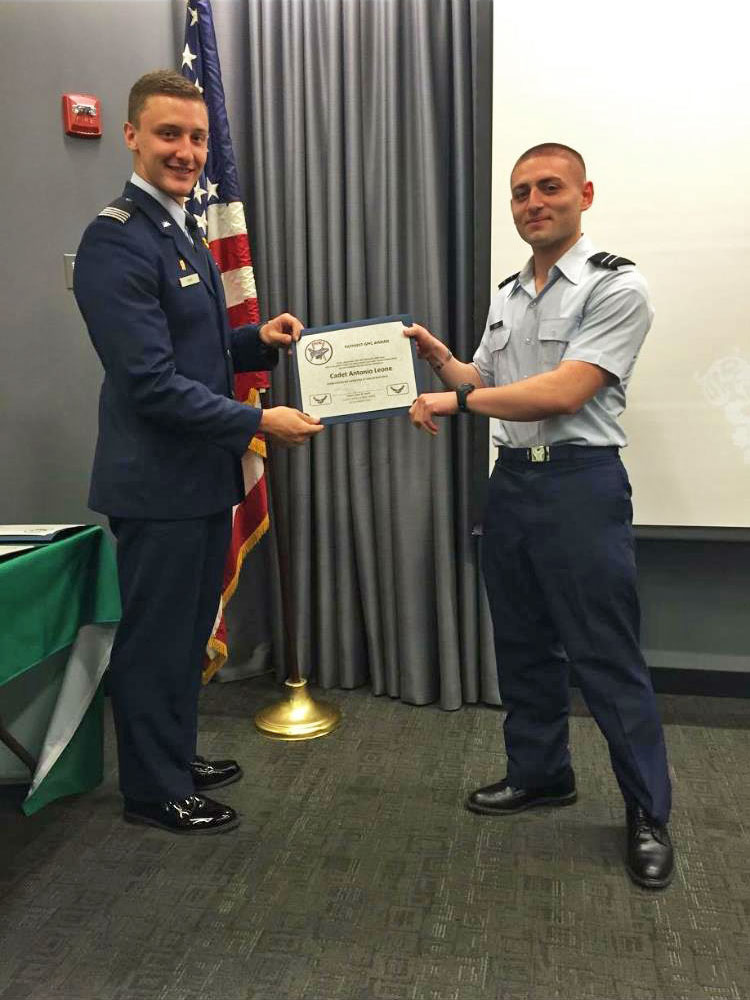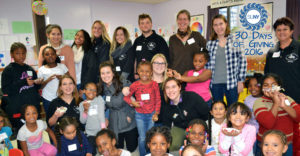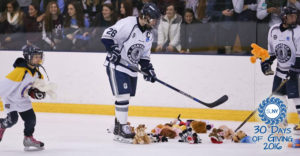
This fall Farmingdale State College has launched a new aerospace studies minor. Thing is, it wasn’t exactly a direct flight getting there.
The program is a joint venture between Farmingdale and Air Force ROTC (AFROTC), and the only one of its kind in the SUNY system. But it took five years to get to this point.
The problem wasn’t on the academic side. In fact, Farmingdale’s curriculum committee wholeheartedly embraced the program when it was submitted for review. The issue was getting an ROTC detachment on campus.
The effort began back in 2010, when Dr. Tom Corti, Farmingdale’s Vice President for Student Affairs, organized a veteran’s services office. A veteran himself, Corti considered his own transition from soldier to civilian, and the isolating effect it had on him. Therefore, he wanted to do as much as possible to ensure that the veterans at Farmingdale didn’t endure the same thing.
“I didn’t want this band of brothers and sisters to feel isolated on campus,” he says.
Next, Corti took notice of students in ROTC uniforms, who were taking courses at other colleges. That’s when he enlisted Farmingdale’s director of veteran’s services, Eric Farina, a veteran of several U.S. Army components, to bring a detachment of one of the Armed Services branches to the college. It turned out to be a frustrating assignment.
“It was a tough sell. With Defense Department spending cuts, none of the military services were expanding. All said no,” Corti recalls.
But Corti and Farina were not to be denied.
“We kept in contact with the local detachments and continued to advocate for a detachment or a sub detachment,” Corti says. “I personally went to every ROTC detachment in the region and spoke to their commanding officers. Fortunately I had served in many joint service installations with not only soldiers, but also marines, sailors and airmen. I was able to talk their service lingo.”
Corti then set his sights on the Air Force, which has a detachment at Manhattan College, in The Bronx. It was the spring of 2015 when Farina finally found a sympathetic ear at the Detachment 560 Cadre. Leadership acted so quickly that a partnership was forged by that August. The fact that Farmingdale has one of the largest aviation programs in the Northeast was key in tipping the scales.
“The Air Force is known among the services as the most technical branch, which is consistent with our mission as a science and technology college,” Corti explains. “Our aviation program was a big plus.”
Now Farmingdale stands alone within SUNY as an AFROTC campus. (Maritime College works with Navy ROTC and offers a naval science minor; The College at Brockport partners with Army ROTC in a military science minor.) And in adding the aerospace minor to its curriculum, Farmingdale joins an elite group of only 44 other U.S. colleges and universities offering it. (Other schools include Cal State, Louisiana Tech, Penn State, Brigham Young, Marquette, and Mizzou. By comparison, more than 1,100 institutions are engaged with AFROTC.)
“The program is academically demanding,” says Corti. “I see it expanding quickly and drawing students from other institutions across Long Island. We too will ‘Aim High’ in our academic standards to build student leaders of tomorrow.”

In fact, to a significant degree, leadership training is what aerospace studies is all about, stresses Lieutenant Colonel Francisco J. Perez De Armas, new Commander of Detachment 560 and Professor of Aerospace Studies at Manhattan College.
“We encourage students of all majors to explore the minor, since it teaches fundamentals of the Air Force, with an emphasis on leadership, team building, organizational behaviors, and ethics, which are key components of the workplace regardless of where you end up.”
To many observers, the minor’s mix of business courses with military studies might seem an odd pairing. On the one hand, the program offers students an understanding of the concepts of aerospace power and the Air Force mission, organization, and operations. Students gain a broad perspective of the military by studying the history of all Department of Defense services and completing leadership and business courses emphasizing the key elements of Air Force officership. Among required courses are The Foundations of the U.S. Air Force; The Evolution of U.S. Air & Space Power; and National Security Affairs/Prep for Active Duty (although there is no active-duty obligation with the minor).
On the business side, students select from four offerings: Organizational Behavior; Teamwork & Team Building; Leadership Theories & Practices; and Leadership & Ethics.
“The business classes focus on leadership and team building, which is a huge component of our curriculum,” Lieutenant Colonel Perez emphasizes. “The other courses are an extension of the fundamentals needed to be a successful Air Force officer, or to achieve success in any career you enter.”
Antonio Leone, an AFROTC cadet captain with Detachment 560, agrees.
“While these classes are designed to help instruct cadets wanting to become Air Force officers, lessons on leadership, listening skills, and group dynamics are important even in the civilian world. I know that one skill I developed while taking these classes was my public-speaking ability. Don’t be surprised if you’re asked to give a military-style briefing while taking the classes.”
Cadet Third Class Heber Zavala, who is enrolled in aerospace studies this semester, adds that AFROTC is demanding both intellectually and physically.
“Each week for the past two semesters I have been trained and evaluated on drill procedures, physical fitness, academic performance and leadership skills. Although ROTC is a challenging program it is nonetheless the most rewarding experience I have had during my time at Farmingdale State College.”



